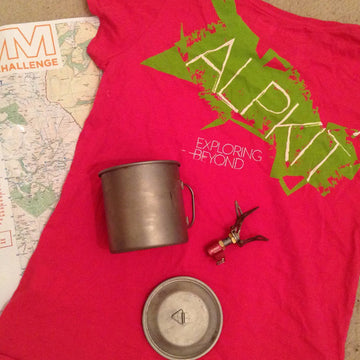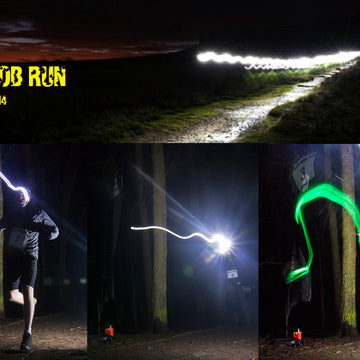
Planning the West Highland Way: Preparing for a long-distance hike through Scotland's stunning landscapes.
In a recent 'Uphill Athlete' podcast about Women in ultras, coach Scott Johnston said "typically the men that come in grossly overestimate their current fitness levels, whereas women come in self-deprecating and more concerned they're not good enough. In both cases they're typically wrong".
I know, I know. Sweeping gender generalisations are not very 21st century. But my goodness, here in the Palmer household and indeed, many athletic households that I know, there's more than a nugget of truth in Johnston's words. There are undoubtedly some confident lasses and self-doubting lads out there but, in my humble experience, when faced with a 'bigger than anything I've ever done before' challenge, this is what I've seen in both myself and in others:
Man: I really fancy doing that therefore I can and I will.
Woman: I really fancy doing that but I don't think I'm fit enough and even if I train really hard, will it be enough in the time I have and what if I can't do it and what if I get injured during training and what if after all that I fail... arghhhhhh?!
The West Highland Way
95.6 miles with 3155m of ascent from the outskirts of Glasgow to Fort William. 35,000 people do it annually, mostly walkers, taking around 8 days on average. Ultrarunner Rob Sinclair ran the whole lot in 13 hours and 41 minutes in 2017. Alpkiteer husband Ian Palmer 'is going to run it' this summer in 4 days.
I, on the other hand, am already considering booking a physio appointment/hospital bed/my own funeral to cope with the 'inevitable' physical catastrophe this challenge will wreak upon my body. Breakfast table conversations are currently something like this:
Me: I'm just not sure I can do this.
Ian: Course you can, I've done it before, it's fine, it's pretty much flat.
Me: You came home after 1 night and said it was one of the worst experiences of your life. Plus it's 3000m of ascent.
Ian: It wasn't too bad. Except the awful bits.
Me: It's too far. I can only run 15 miles at the moment. How am I supposed to do an extra 10 then repeat it for the next 3 days?
Ian: I don't know what you're making such a fuss about, it's just like walking to Lancaster from here and I can see that from the window.
Me: But what about you? You're hardly doing any running at the moment.
Ian: Pah, I'll be fine. I've got legs.
In reality, I am racking up way more running miles than Ian, but, professional self-doubter that I am, cannot currently imagine being able to run a marathon distance every day for 4 days. My body composition is 75% tendinopathy, (hamstrings, hips and a random elbow) and 25% fear. Is it madness to be even considering it?
Our plans are further hampered by logistics. The West Highland Way is popular - very popular - and beds fill up fast. Many will want tables in pubs for their evening meals. Will there be room for us?
Our four options for completing the West Highland Way
- The 'luxury' edit. Book B&Bs each night, eat out and carry small packs. The downside is the cost and the risk of everything being booked up.
- Book a Sherpa service to take camping kit to 3 sites along the way. The downside is trying to get into a sleeping bag in a tiny tent with crampy legs, plus campsites might be getting booked up soon.
- Split the effort. Ian runs each day. I drive the camper van to the evening stop then run back to meet. This appeals to my legs but less so to my sense of adventure or pride.
- Carry everything on our backs but reduce speed to a walk. If campsites are full, we can wild camp but the downside is that it will take forever.
Options 1 and 2 mean committing to specific dates when the weather could be terrible, but we can actually run the route. Options 3 and 4 give us the freedom to do it on a whim when the weather is good but will mean either one or both of us will have to compromise on the running.
What's next
Firstly, we'll have to agree on which option we take and, if necessary, get things booked. Secondly, we'll have to tailor the training which might mean keeping on upping the mileage or it might mean practicing walking with heavy packs. Lastly, I'll have to try to suppress my 'worst case scenario' anxieties and try to think more like Ian: can we do it? Yes we can!
After all, we do indeed 'have legs' so how hard can it be?



